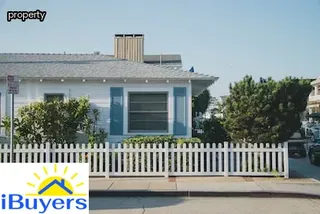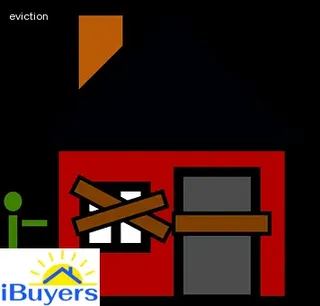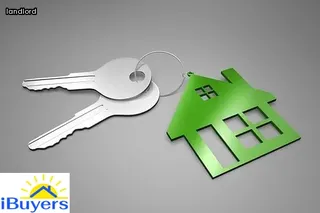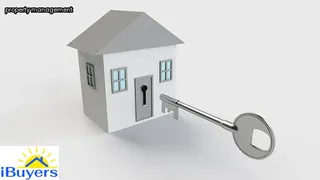Evicting tenants from a rental property can be a daunting task. However, there are several creative ways landlords can approach this problem to achieve an effective outcome.
One strategy is to provide notice of eviction with sufficient time for the tenant to move out voluntarily. Another option is to offer the tenant a settlement agreement that includes compensation if they agree to leave before the eviction process begins.
Additionally, landlords may opt for alternative dispute resolution processes, such as mediation or arbitration, which allow both parties to have their say in the matter and come to an agreed-upon solution. On the other hand, landlords may decide on legal action as another viable solution by filing an unlawful detainer lawsuit against their tenant.
Finally, enlisting professional help from qualified personnel such as lawyers or property managers can ensure that all legal matters are handled correctly and efficiently throughout the eviction process. By using one or more of these strategies, landlords can attempt to remove problematic tenants from their rental property successfully.

If you are a landlord, dealing with unruly tenants is inevitable. It’s an unfortunate reality that sometimes the best-laid plans can go awry and you find yourself in a situation where you must remove a tenant from your rental property.
There are several strategies to get rid of bad tenants that can help alleviate some of the stress associated with this process. First, it’s important to know your local laws and regulations as they pertain to evicting tenants.
Following all legal protocols is key when attempting to remove problematic tenants from your property. Second, consider hiring an experienced attorney who specializes in landlord-tenant law if eviction is imminent.
Third, clearly communicate with the tenant about their violation of lease terms and document any attempts to resolve the issue. Fourth, give proper notice if you choose to terminate the lease agreement as required by law.
Finally, if necessary, file for eviction through the court system and follow court orders throughout the process. Utilizing these five effective strategies for removing problematic tenants from your rental property can help ensure that you remain legally compliant while also protecting both your rights and those of your tenant(s).
When it comes to evicting a tenant from your rental property, legal eviction is often seen as the best route. Legal eviction allows a landlord to take action against a tenant if they are not paying rent or breaking the terms of their lease agreement.
The primary benefit of legal eviction is that it provides the landlord with a greater degree of protection and control over the situation. For example, by filing court papers, landlords can get an order from the court prohibiting tenants from accessing the property until the issue is resolved.
Additionally, legal evictions give landlords the ability to collect damages for any losses incurred due to non-payment of rent or other violations of their lease agreement. However, there are some drawbacks to using legal eviction as a means of removing problematic tenants from your rental property.
Firstly, it can be expensive in terms of both time and money with court costs and attorney fees adding up quickly. Secondly, legal evictions can take weeks or even months before being finalized which could impact your bottom line if you’re not able to fill vacancies quickly enough.
Finally, engaging in lengthy legal proceedings may damage relationships between landlords and tenants and create an atmosphere of mistrust between them moving forward.

When it comes to evicting problematic tenants from a rental property, an eviction is not always necessary. In fact, there are several alternatives to eviction that can be just as effective in removing troublesome tenants.
One way to remove a tenant without going through the lengthy and costly process of an eviction is to offer them a cash-for-keys agreement. This involves providing the tenant with a certain amount of money in exchange for them agreeing to vacate the property within a certain time frame.
Another alternative to eviction is settling out of court. This can save landlords both time and money when dealing with troublesome tenants, though it does require some negotiation skills on behalf of the landlord.
Thirdly, another effective strategy for removal is to pursue a constructive eviction. Here, landlords will make changes or repairs to the property that are so disruptive that they force the tenant to leave.
Finally, in some cases, landlords may be able to legally terminate their lease agreement with a tenant due to violations of rental policies or laws. Whichever alternative route you choose for removing problem tenants from your rental property, it's important that you consult with an attorney beforehand and have all agreements documented in writing.
When it comes to dealing with problematic tenants in a rental property, there are several strategies you can use to effectively remove them. One approach is to serve the tenant with an eviction notice, which should include a clear explanation of why they are being evicted and any legal consequences if they fail to vacate the property by the deadline.
If necessary, landlords may also take legal action against bad tenants that do not comply with the terms of their lease agreement. Additionally, landlords should consider mediation services or local tenant-landlord programs that specialize in helping resolve disputes between landlords and tenants.
Another option is for landlords to utilize forbearance agreements, which allow for temporary payment plans or rent reductions for tenants experiencing financial hardship. Finally, if all else fails, landlords may be able to enlist the help of law enforcement authorities in order to have problem tenants removed from their property.

Dealing with difficult tenants without eviction can be a tricky situation, but there are some strategies that can help landlords manage their rental property and problematic tenants. One effective strategy is to create a landlord-tenant agreement that includes clear rules and expectations.
Additionally, staying on top of communication with tenants will allow the landlord to keep tabs on any potential issues before they become out of control. In more serious cases, an increase in rent may help remove difficult tenants since they may not be able to pay it or find suitable alternative housing.
If necessary, mediation between the tenant and landlord can also provide a resolution outside of court proceedings. Lastly, if all else fails, terminating the tenancy by giving appropriate notice may be the only option left for landlords to remove problematic tenants from their rental property.
When a tenant won't leave your rental property, it can be difficult to know how to handle the situation. Fortunately, there are a few effective strategies for removing problematic tenants from your rental property.
One option is to pursue legal action by filing an eviction notice. An eviction notice must be properly served and include all required information in order to be valid.
Additionally, you could try offering the tenant an incentive such as a cash payment or reduced rent in exchange for them leaving the rental property on their own accord. If these tactics do not work, you may need to contact local law enforcement and have them escort the tenant off the premises.
It is also important to remember that if you do not follow the proper procedures when removing a tenant from your rental property, this could potentially result in legal repercussions for yourself or your business. Consequently, it is important to understand what steps are necessary in order to ensure that everything is done legally and properly when dealing with problematic tenants who will not leave your rental property.

Yes, it is possible to get rid of a tenant without eviction. A landlord can use several effective strategies for removing problematic tenants from their rental property without having to resort to legal action.
One option is to offer the tenant a deed-in-lieu of foreclosure, which allows them to surrender the property and avoid any further financial obligations. Another strategy is to enter into a cash-for-keys agreement with the tenant, in which they are offered money in exchange for vacating the premises.
Additionally, some landlords may opt for an informal negotiation process, where they attempt to resolve any issues that are causing problems between both parties and come up with an amicable solution. Finally, if all else fails, landlords can also use mediation or arbitration services as a last resort before taking legal action against tenants.
With these five effective strategies in hand, landlords can easily remove problematic tenants from their rental properties without having to go through the costly and lengthy eviction process.
Working with tenants can be a difficult task for any property owner, especially when it comes to dealing with problematic habits. As a landlord, there are certain strategies you can use to help discourage your tenants from exhibiting these behaviors.
Start by making sure you screen applicants thoroughly before allowing them to move into your rental property. Check references and review credit reports to ensure the applicant is responsible and reliable.
Additionally, make sure you provide clear rules and regulations in the lease agreement so there's no confusion about expectations for behavior. Another way to discourage problematic tendencies is through proper communication.
If an issue arises, address it immediately and clearly explain why their behavior is inappropriate. You should also provide opportunities for tenants to voice their concerns and offer solutions if they feel something needs to be changed in order to improve living conditions.
Finally, enforce consequences in a consistent manner if any of your rules are broken or inappropriate behavior continues. These five tips will provide you with effective strategies for removing problematic tenants from your rental property while encouraging good habits from those living in your space.

If your tenant breaks their lease agreement, it can be a difficult situation to manage. It is important to remember that, as the landlord, you have certain rights and responsibilities in the situation.
The most effective way to handle problematic tenants is to act quickly and decisively. First, make sure that you document all violations of the lease agreement and send a written warning notice to your tenant.
This should include an explanation of why their actions are unacceptable and what consequences could result if they do not take corrective action. If necessary, you may also want to consider legal action against the tenant for breach of contract.
Additionally, it is important to keep communication open between yourself and your tenant so that any issues can be addressed before they escalate further. Finally, try offering an incentive for them to vacate the property in order for you to avoid having to go through a lengthy eviction process.
If these strategies fail, then formal eviction proceedings will likely be necessary in order to protect your rights as a landlord.
As a landlord, it is essential to understand the laws and regulations surrounding tenant-landlord rights in order to successfully remove problematic tenants from your rental property. These laws will vary based on the location of your rental property, so it is important to do research and familiarise yourself with the relevant regulations.
Firstly, there should be written documentation between both parties outlining their rights, responsibilities and obligations. This should include rent payment due date and amount, notice requirements for any changes or termination of tenancy and any other stipulations regarding tenant conduct that are required by law.
Secondly, it is recommended to provide written notice of eviction when necessary. Depending on the area you are in, this could range from 3 days to 90 days notice.
Thirdly, if the tenant does not comply with the terms of their lease or fails to pay rent then a court hearing may be necessary for eviction proceedings where a judge will review both parties' claims before making a decision. Fourthly, landlords must follow state regulations for storing and disposing of tenant possessions after an eviction has taken place.
Lastly, landlords should consider using professional services such as collection agencies or legal counsel in cases where tenants have skipped out on rent payments but can still be located; this can help speed up the process of recovering financial losses as well as regain possession of the rental property.

Removing an unwanted tenant from a rental property can be a stressful and difficult process for landlords. The good news is that there are legal strategies to help make the situation easier.
To effectively and legally remove problem tenants, landlords should first understand their rights and the laws in their state or province related to tenant eviction. Once they have a clear understanding of the law, they can begin to implement one of the five most effective strategies for removing problematic tenants from their rental property including establishing a written lease agreement, using notices of termination, following proper eviction protocols, utilizing court orders, and engaging professionals when necessary.
Establishing a written lease agreement lays out expectations for both parties and provides protection for the landlord if needed. Notices of termination provide clear instructions on what must be done to resolve the situation and should be used to give warning prior to initiating eviction proceedings.
Proper eviction protocols must be followed in order to ensure that all legal requirements have been met before any action is taken against the tenant. If necessary, court orders can be obtained in order to gain possession of a rental property if other strategies fail or if more immediate action needs to be taken.
Lastly, professional help may need to be sought out if complications arise during the removal process so that any legal issues are addressed correctly. Using these five effective strategies will help landlords safely and legally remove problem tenants from their rental property quickly and efficiently.
Removing problematic tenants from a rental property can be a very difficult process, especially if the tenant won't leave. There are, however, some effective strategies that landlords can use to evict tenants who have overstayed their welcome.
The first step is to terminate the tenant's lease legally. This should include giving the tenant written notice of the termination and providing an explanation for why it was issued.
Additionally, landlords should make sure they are in compliance with local and state laws regarding eviction procedures. Once the lease is terminated, landlords should consider serving a legal notice to the tenant requiring them to move out within a certain amount of time.
If the tenant fails to comply with this notice, landlords may need to file an eviction lawsuit in court. Finally, landlords should consider hiring a professional attorney or real estate agent who specializes in dealing with tenancy disputes and can help them navigate through this process as quickly and effectively as possible.
With these five effective strategies, landlords can successfully remove problematic tenants from their rental property without having to resort to drastic measures like physical removal or force.

It can be tricky to remove problematic tenants from your rental property, but there are a few effective strategies that you can use to get rid of bad tenants.
Annoying bad tenants is one of the best ways to make them want to move out quickly.
Here are five surefire methods for annoying your problem tenants: 1) Put up signs and flyers around the neighborhood informing everyone about the tenant’s behavior; 2) Don’t respond to their calls or emails; 3) Don’t fix repairs or maintenance issues in a timely manner; 4) Make frequent noise complaints against them; and 5) Change the locks on their doors.
Each of these strategies will help you get rid of troublesome tenants in no time.
When it comes to removing problematic tenants from your rental property, there are a few key strategies you can employ. One of the most important is to politely ask the tenant to move out.
Establishing clear communication is essential when dealing with this situation, so be sure to send an official letter or email in advance outlining your expectations for them to vacate the premises. Make sure to provide ample notice as well as a reasonable timeline for them to move out.
In addition, stress the importance of following all applicable rules and regulations set forth in your lease agreement. If necessary, provide resources that can help the tenant find another residence, such as local housing authorities or moving companies.
It’s also important to remain professional throughout this process and avoid becoming too emotional or confrontational when communicating with the tenant. Above all else, make sure you document each step of this process carefully and accurately so that if legal action becomes necessary, you have a record of all relevant information.